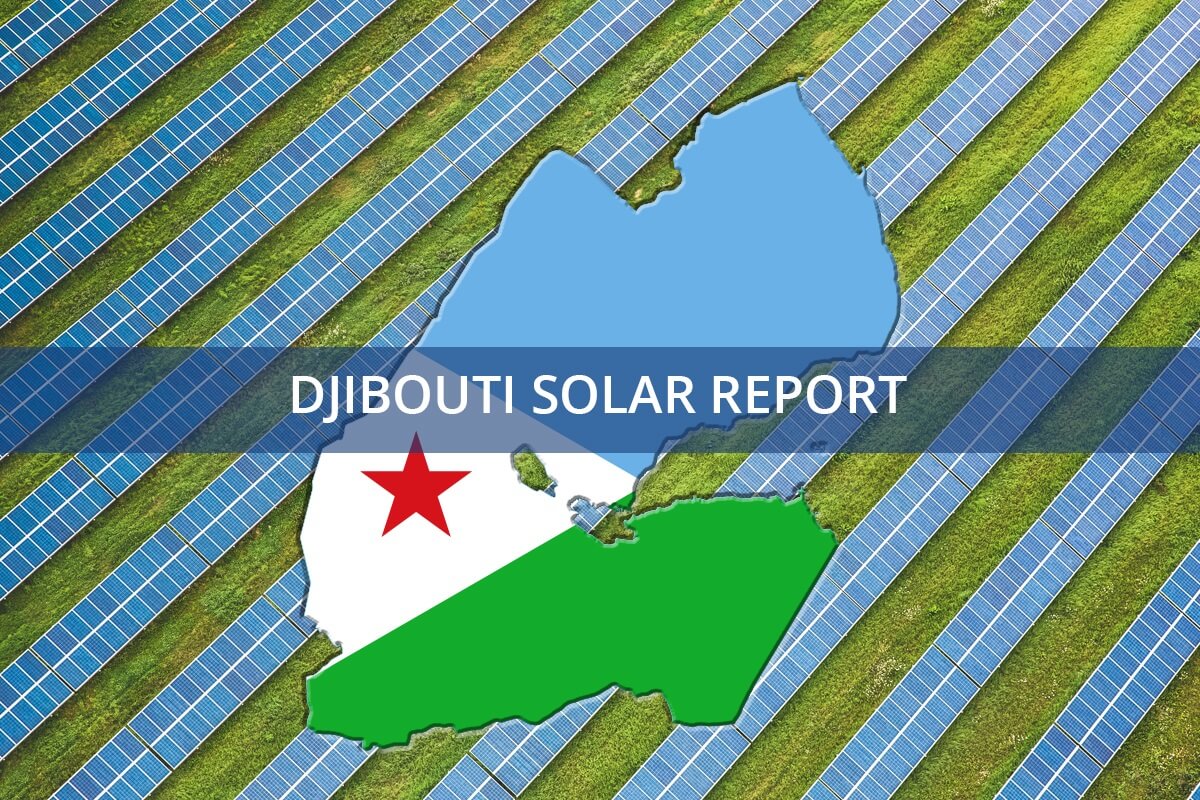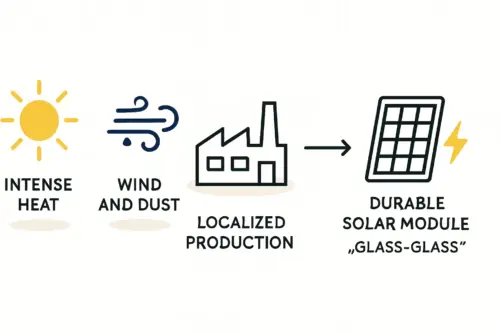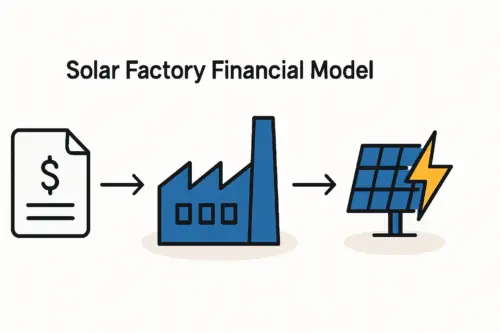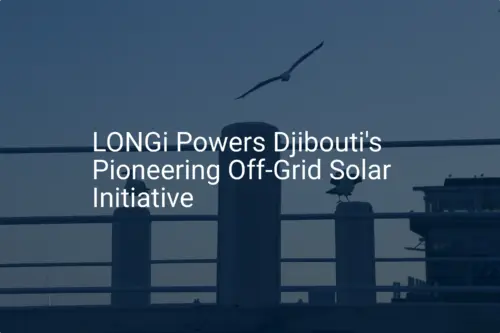The immense potential of the East African solar market is clear to many entrepreneurs. As demand for reliable energy grows, a key strategic question emerges: where is the optimal location for a manufacturing base? The answer must balance production costs, logistical efficiency, and access to target markets.
Often, the most effective solution lies not within the largest market itself, but in a strategic regional hub. This analysis explores the business case for establishing a solar module manufacturing facility within the Djibouti International Free Trade Zone (DIFTZ). It outlines how this location can serve as a powerful launchpad for exporting to Ethiopia, Somalia, and the broader Common Market for Eastern and Southern Africa (COMESA) region.
Why Djibouti? A Strategic Hub for Regional Manufacturing
At first glance, Djibouti may seem like a small market. Its value, however, lies not in domestic consumption but in its unparalleled strategic position as a gateway to Africa. Located at the southern entrance to the Red Sea, the country serves as the primary maritime link for its landlocked neighbor, Ethiopia—a nation of over 120 million people with significant energy needs.
This geographical advantage is amplified by political stability and a government policy focused on developing the nation into a world-class logistics and commercial hub. The cornerstone of this strategy is the Djibouti International Free Trade Zone (DIFTZ), an ecosystem designed to attract foreign investment and facilitate international trade. For a prospective solar module manufacturer, this creates a stable and predictable environment for serving a dynamic and often complex region.
The Financial Advantages of Manufacturing in the DIFTZ
Financial incentives and the long-term cost of doing business are critical factors when deciding where to establish a factory. The DIFTZ is structured to directly address these concerns, offering a highly competitive fiscal environment compared to operating on the mainland or in neighboring countries.
A Favorable Tax and Duty Regime
The primary financial benefit of the DIFTZ is its tax structure. Businesses established within the zone are typically granted significant exemptions that directly impact profitability and cash flow. These often include:
-
Corporate Tax Exemption: A complete exemption from corporate income tax for an extended period, potentially up to 10 years, depending on the scale of the investment.
-
Duty-Free Imports: All raw materials, machinery, and equipment required for the solar module production line can be imported free of customs duties and taxes. This substantially reduces initial setup costs and ongoing operational expenses for materials like solar cells, glass, and aluminum frames.
-
VAT Exemption: Transactions within the free zone are exempt from Value Added Tax (VAT), simplifying accounting and reducing the cost burden.
-
No Foreign Exchange Controls: Capital and profits can be freely repatriated without restriction, providing investors with financial flexibility and security.
These incentives create a powerful financial model, allowing a manufacturer to lower its cost base and make its final product more competitive in price-sensitive export markets.
Access to Finance and Currency Stability
Another critical advantage is Djibouti’s stable currency. The Djiboutian Franc (DJF) is pegged to the US Dollar, eliminating currency fluctuation risks for international businesses that trade primarily in USD. This predictability is essential for long-term financial planning and for securing project financing. The free zone also hosts international banks, streamlining access to trade finance and other corporate banking services.

The Logistical Powerhouse: From Production Line to End Market
A favorable financial structure is only effective if the product can reach the customer efficiently. Djibouti’s investment in world-class infrastructure is arguably its greatest asset for an export-oriented manufacturer.
World-Class Port Infrastructure
The Port of Djibouti, particularly the Doraleh Multipurpose Port and Doraleh Container Terminal, is one of the most modern and efficient in Africa. For a solar module factory, this means:
-
Efficient Inbound Logistics: Seamless importation of raw materials and components from global suppliers in Asia, Europe, and North America.
-
Rapid Outbound Logistics: Fast, reliable loading of finished solar modules onto vessels for sea freight to regional ports in Somalia, Kenya, or beyond.
This high level of efficiency minimizes turnaround times, reduces demurrage costs, and protects production schedules from port congestion—a common challenge in other parts of the continent.
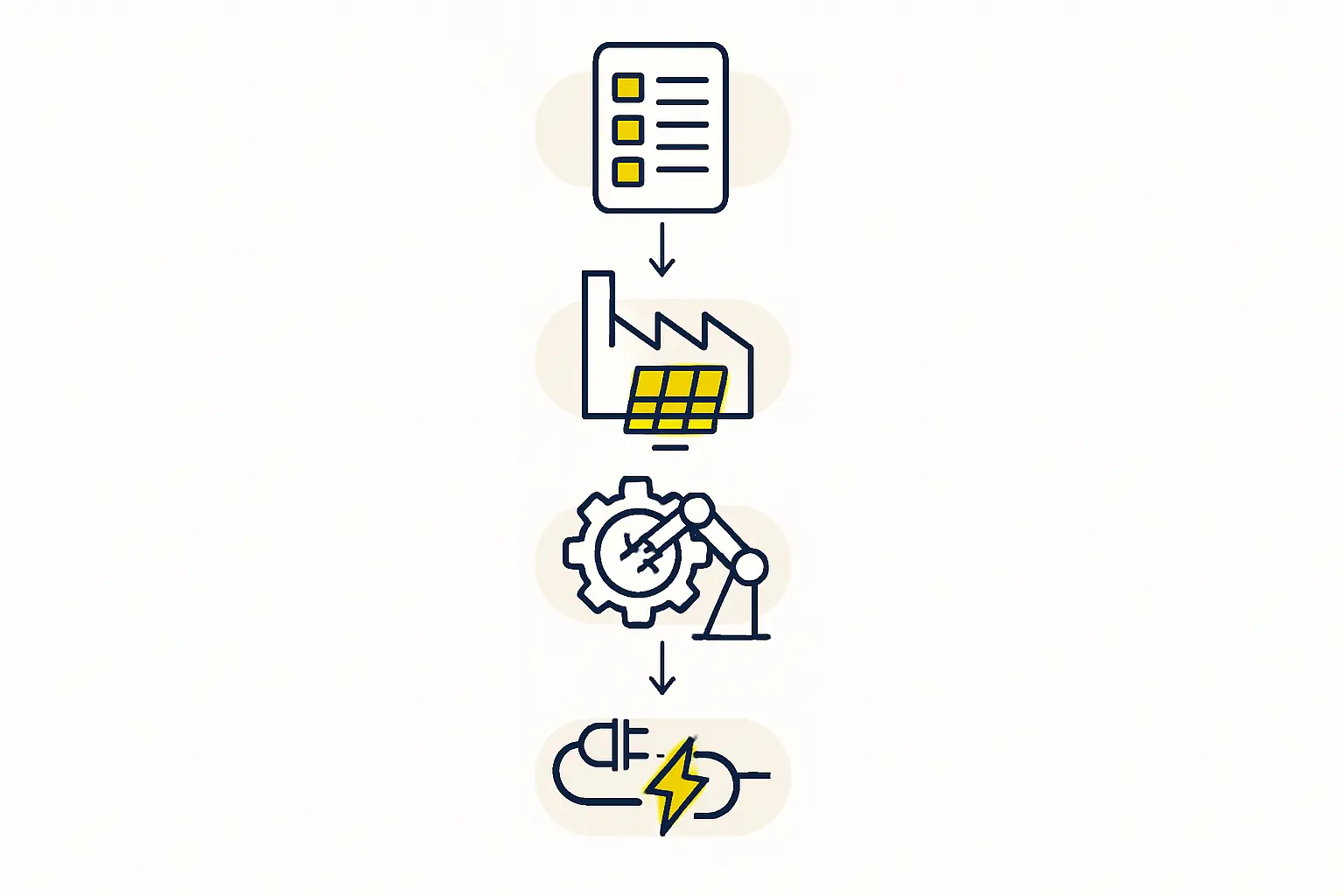
Unlocking the Ethiopian Market and Beyond
The most significant logistical advantage for serving East Africa is the Addis Ababa-Djibouti Railway. This modern electric railway provides a direct, high-capacity link to the heart of the Ethiopian market.
Finished solar modules can be loaded onto freight trains directly from the manufacturing zone and reach inland container depots in and around Addis Ababa in under 15 hours. This land bridge is far more efficient and secure than road transport, bypassing potential border delays and poor road conditions. It transforms a company based in Djibouti into a quasi-local supplier for Ethiopia. This logistical corridor is a key factor when considering the overall investment requirements for a solar factory.
Navigating the Business Environment: A Practical Perspective
While the strategic advantages are clear, success depends on navigating the practical realities of setting up and operating a factory. J.v.G.’s experience with turnkey projects highlights several key areas for entrepreneurs to focus on.
Labor and Operational Considerations
Djibouti has a readily available workforce, though specialized technical skills for solar module assembly may require dedicated training programs. A successful operational plan must therefore incorporate comprehensive training, often involving expatriate technical managers in the initial phases to establish production standards and quality control. The DIFTZ also offers reliable access to utilities like electricity and water—a critical advantage over locations where grid instability can disrupt production.
Framework for Investment
The Djibouti Ports & Free Zones Authority (DPFZA) acts as a one-stop-shop for investors, streamlining the processes of company registration, licensing, and visa issuance. This centralized authority simplifies the administrative burden, allowing business owners to focus on core operational planning. Proper due diligence and a well-structured business plan are essential for navigating this process smoothly. The pvknowhow.com platform provides structured resources, including e-courses, to help guide entrepreneurs through this critical planning phase.

Frequently Asked Questions (FAQ)
What is the minimum investment for a small-scale solar module assembly plant in Djibouti?
A small-scale, semi-automated line with a capacity of 20-50 MW per year typically requires an initial investment in machinery and setup ranging from $1.5 million to $4 million USD, excluding the cost of the building and working capital.
Are there restrictions on foreign ownership within the DIFTZ?
No, the DIFTZ permits 100% foreign ownership of companies established within its jurisdiction, giving investors full control over their operations.
How do trade agreements like COMESA and AfCFTA benefit a manufacturer in Djibouti?
As a member of COMESA and a signatory to the African Continental Free Trade Area (AfCFTA), goods manufactured in Djibouti can qualify for preferential tariff treatment when exported to other member states, provided they meet local value-add requirements. This provides a significant competitive advantage over modules imported from outside the continent.
What are the main raw materials that need to be imported for module assembly?
The primary imported components include solar cells, tempered front glass, backsheets or rear glass, EVA encapsulant film, aluminum frames, and junction boxes.
How long does it typically take to set up a factory in the DIFTZ?
With a clear business plan and secured financing, the process from company registration to the start of production takes approximately 9 to 12 months. This includes building fit-out, machinery procurement and installation, and initial staff training.
Conclusion: The Next Step in Your Strategic Planning
For entrepreneurs looking to serve the burgeoning East African solar market, Djibouti offers a powerful combination of financial incentives, logistical superiority, and a stable operating environment. By leveraging the DIFTZ, a manufacturer can significantly de-risk their investment while maximizing access to the region’s largest economies.
The opportunity is substantial, but it requires meticulous preparation. Understanding the complete process, from initial feasibility studies to final product certification, is fundamental to a successful venture. Building this foundational knowledge is the first and most important investment an entrepreneur can make when learning how to start a solar manufacturing business.


